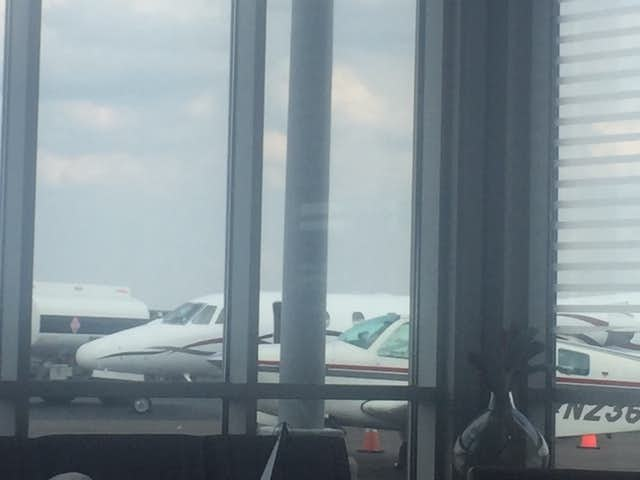The Falcon 50 accident killed both pilots and seriously injured the two passengers after overrunning the runway in Greenville, South Carolina.

According to a final report from the National Transportation Safety Board (NTSB), neither pilot flying the ill-fated Dassault Falcon 50 that overran the runway at Greenville Downtown Airport (GMU) in September 2018 was qualified to operate the flight as a Part 135 charter.
The accident of N114TD killed both Air America Flight Services pilots and severely injured their two passengers.
The NTSB airport report said the Falcon 50 touched down normally, and the airplane’s thrust reverser deployed. However, the airplane continued down the runway without decelerating before overrunning the runway and impacting terrain.
Post-accident examination of the private jet’s brake system revealed discrepancies in the antiskid system that included a broken solder joint on the left-side inboard transducer and a reversal of the wiring on the right-side outboard transducer.
The NTSB said it is likely that these discrepancies caused the normal braking system to fail to function during the landing.
The flight, operating as a Part 135 charter, had originated at St. Pete-Clearwater International Airport (PIE) in Clearwater, Florida.
According to NTSB, the flight crew had difficulties understanding the navigation fixes during the approach to Greenville. Furthermore, the crew did not use any prelanding checklist.
The pilot held an airline transport pilot certificate and a type rating for the Dassault Falcon 50.
However, the certificate was limited to second-in-command privileges only.
The co-pilot held a private pilot certificate with ratings for airplane single-and-multi-engine land. He did not hold any ratings or an instrument rating.
According to the final report, the ill-fated airplane had only recently returned to service.
An analysis of records showed that required maintenance related to the aircraft’s braking system hadn’t been completed.
A pilot who had completed four flights on N114TD reported brake system failure to the company’s maintenance director.
The NTSB reported, “None of the available maintenance records indicated the brake system issue or showed maintenance actions performed to resolve the issue.”
NTSB attributed the cause of the crash to brake failure, failure to carry out scheduled maintenance, and maintenance record keeping. It also cited operator policies, procedures, and failures by the flight crew and flight dispatch.
